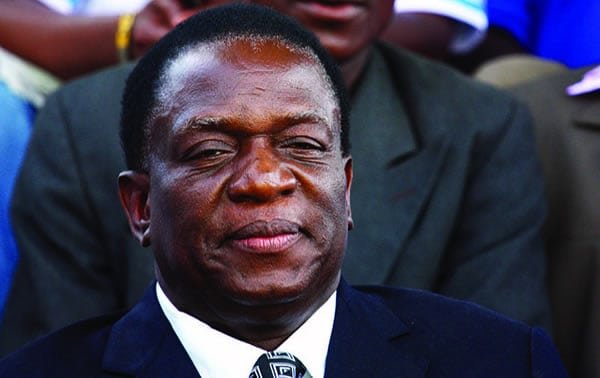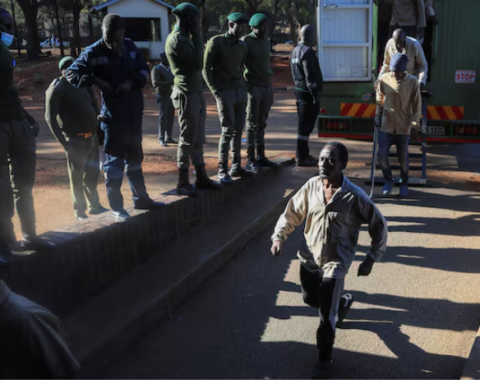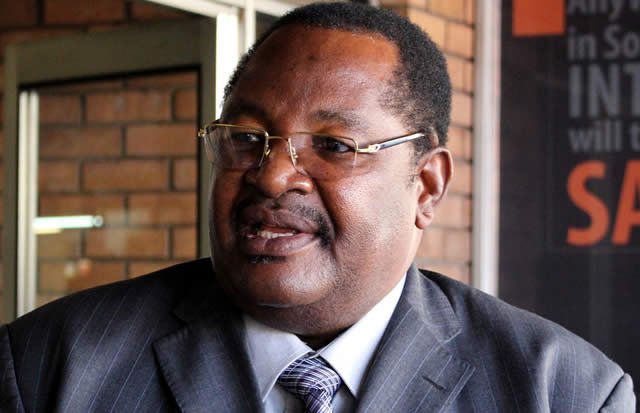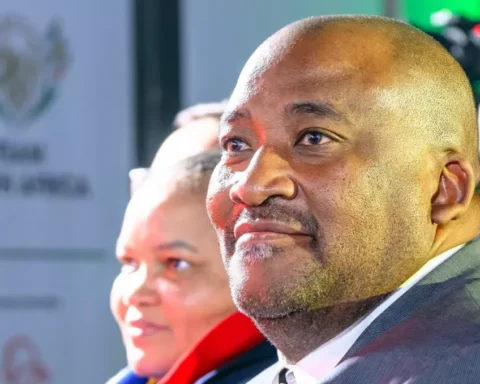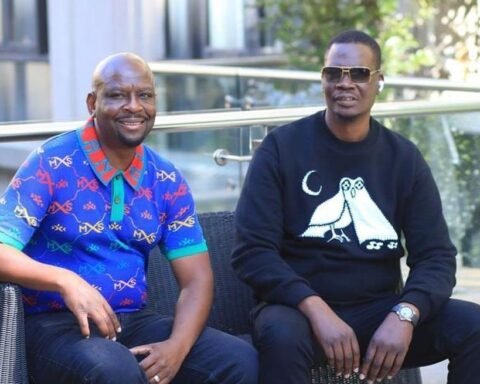IN a dramatic development which could have led to a seismic shift in local politics, Vice-President Emmerson Mnangagwa last week offered to resign from his government and ruling party posts, saying he could not stand the ongoing public flogging and humiliation by Zanu-PF’s Young Turks coalesced around First Lady Grace Mugabe, the Zimbabwe Independent has heard.
High-level sources said a concatenation of recent events led to Mnangagwa’s resignation, which was, however, rejected by President Robert Mugabe. Mnangagwa has worked with Mugabe for almost 50 years and is always critical to his election strategy.
The sources said Mnangagwa met Mugabe on Monday last week, where he complained about the public flagellation and embarrassment he had been subjected to and endured at Zanu-PF youth and women rallies, most blatantly at the party headquarters in Harare on July 27 and July 29 in Chinhoyi.
Prior to that, he had been publicly routed in Marondera, Mutare and Masvingo, directly and indirectly. Mugabe and Grace, supported by their allies, often led the charge most of the times.
Higher Education minister Jonathan Moyo started the current ruthless campaign against Mnangagwa on June 1 at a Sapes Trust Dialogue Series public discussion in Harare, where he said Defence minister Sydney Sekeramayi – now widely seen as the chosen one – was a better candidate to succeed Mugabe than the vice-president. The following day in Marondera, Mugabe reinforced the message and has been doing so during each of the ongoing youth rallies.
Moyo launched the most ferocious attack on Mnangagwa through a video-documentary at a Zanu-PF politburo meeting on July 19. Mnangagwa will respond to the video, which says he is plotting to oust Mugabe, in the next politburo meeting. Moyo is said to be planning a counter-attack on Mnangagwa after that.
Tomorrow Mugabe might stay course despite Mnangagwa and his allies’ protests at the next youth rally in Gwanda.
Vice-President Phelekezela Mphoko has also been brutal in his attacks on Mnangagwa. Another G40 ally Patrick Zhuwao has been on a warpath against the vice-president. Last year Mnangagwa was also subjected to public attacks, mainly by Manicaland provincial minister Mandi Chimene and ousted Zanu-PF Women’s League treasurer Sarah Mahoka.
“Following recent events and political developments, Mnangagwa on Monday last week offered to resign,” one source said. “He sought to resign in writing from his two posts as state vice-president and Zanu-PF second secretary at an impromptu meeting, where Mugabe declined the letter and resignation.
“The vice-president gave mainly two reasons for seeking to quit. First, he cited public attacks and humiliation by Grace at the Zanu-PF headquarters on July 27 and the same thing two days later, on July 29, in Chinhoyi.
“Second, Mnangagwa said he now believes there is a plot against him by the system, given recent developments and allegedly false intelligence reports which on many issues made him think Mugabe wanted him to be his successor.”
Sources said Mnangagwa took with him some newspaper articles which showed Grace’s public attacks on him.
“The vice-president had newspaper articles which he presented to Mugabe, saying Grace has launched a character assassination campaign against him. He said he has the capacity to respond, but has been quiet because he respects the First Family.”
Mnangagwa’s backers say the vice-president also urged Mugabe to resolve his differences with the military privately rather than publicly attacking them.
Mnangagwa, who until recently was seen as a shoo-in to succeed Mugabe, is locked in a bitter wrangle with the G40 faction pushing for Sekeramayi to succeed the long-time ruler. At the Zanu-PF Women’s League national assembly meeting a fortnight ago, Grace challenged Mugabe to anoint his successor in a move widely seen as an attempt to derail Mnangagwa’s bid and fast-track Sekeramayi in.
Mugabe then lambasted the military for meddling in politics, warning their moves were bordering on a coup.
Grace also addressed the Chinhoyi youth rally, where she degraded her rivals in the presence of Mugabe. There she insinuated Mnangagwa was loyal to Mugabe by day, but disloyal to him by night, before challenging him to be consistently loyal. The First Lady, who last year said vice-presidents reported to her, publicly embarrassed Mugabe’s spokesman, George Charamba, a Mnangagwa loyalist, accusing him of abusing the state media for factional agendas. She asked why the state-controlled media was being used to denigrate certain ministers and officials while promoting others. Since then, the state media, particularly The Herald and The Sunday Mail, have retreated in fear.
Grace also took the opportunity to defend her G40 allies, Moyo and the embattled national commissar Saviour Kasukuwere, saying the Higher Education minister was being falsely accused of corruption, while Kasukuwere was being targeted for political reasons.
Kasukuwere has been under fire after nine of the party’s 10 provincial executive committees passed a vote-of-no-confidence in him. He was accused of creating parallel structures to unseat Mugabe, mismanagement, abusing party assets, funds and nepotism. Mugabe said no-one appointed by him can be removed by provinces.
Moyo has been accused of abusing the Zimbabwe Manpower Development Fund money for personal benefit and to advance his political objectives. But Zanu-PF has come to his rescue, saying he used the public funds to support party activities.
In February last year, Mnangagwa was subjected to a stinging attack by Mahoka, who challenged him to openly declare his presidential ambitions before accusing him of behaving like a duck. Following the latest attacks, Mnangagwa met Mugabe, where he pledged his loyalty to the president before offering to quit.
“The two have been together for a long time and Mnangagwa has been a pillar of strength for Mugabe, especially being his election agent,” the source said.
“Mnangagwa asked Mugabe last week to relieve him of his duties so that he doesn’t continue to be attacked and humiliated, having faithfully worked for the president for a long time. He complained that on various occasions, very junior people are politically manipulated and used to embarrass him.”
Zanu-PF insiders say Mnangagwa has previously contemplated resigning after certain critical events.
In 2000, after his defeat in the parliamentary election by the original MDC’s Blessing Chebundo in Kwekwe, Mnangagwa is said to have almost retired before Mugabe sent the late vice-present Simon Muzenda to tell him to stay as he was going to be made Speaker of Parliament. The same issue arose in 2005 after his second defeat by Chebundo. Mugabe rescued him and appointed him MP and Rural Housing minister.
After bruising defeats within Zanu-PF in 1999 and 2004, for positions of chairman and vice-president by the late John Nkomo and ex-vice-president Joice Mujuru respectively, Mnangagwa fought back and recovered. This time it seems he is facing his toughest political test yet.
